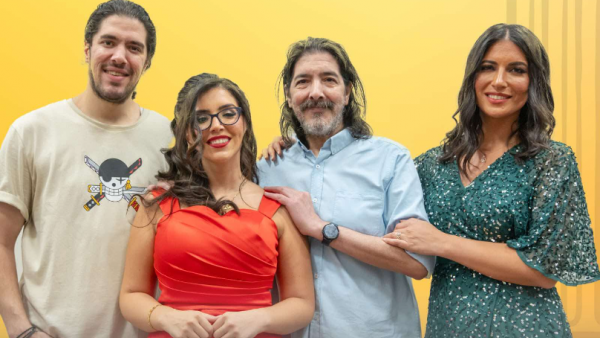First broadcast in March 2000, Spacetoon is a pan-Arab free-to-air channel dedicated to animation and children’s programming, airing on Nilesat Digital Satellite.
Over time, Spacetoon became a revolutionary 24-hour network, the first of its kind to broadcast Arabic-dubbed anime around the clock, and has since been watched by more than 130 million viewers across the MENA region, initially attracting young MENA millennials and Generation Z.
In addition to playing a crucial role in acquiring licenses, distributing, and dubbing anime, the channel also gained credibility by signing agreements with the Arab League, UNICEF, and the WHO to provide valuable content for its audience.
But what makes Spacetoon truly special is how its dubbed shows were thoughtfully adapted to resonate with Arab culture, ethics, and taboos, ensuring a warm and enthusiastic reception from the audience.
For example, the channel has paid significant attention to the religious values of Arab society, which was reflected in its educational segments and breaks highlighting key religious practices and virtues, such as fasting during Ramadan and the Hajj pilgrimage.
That said, one of Spacetoon’s most iconic characters is Fulla, a Barbie-like fashion doll developed specifically for MENA children from Muslim families.
To help MENA girls feel represented, Fulla was designed with long black hair and brown eyes, and in more conservative countries like Saudi Arabia, she was dressed in a black abaya and headscarf, while in more liberal countries, she wore a white scarf and a pastel coat without a headscarf.
Unsurprisingly, this strategy helped the pan-Arab channel earn the trust of MENA parents. According to a survey conducted in 2004 by IPSOS, a global market research firm, which identified the general viewing habits of Spacetoon’s target group (ages 5-14) in the Middle East, 85% of mothers said they encouraged their children to watch Spacetoon because of its “educational children’s programs.”
In addition to its educational content, the pan-Arab TV channel promoted a sense of belonging to the Arab nation through Arabic songs and characters like Fulla.
For many, this aspect created a strong bond, so much so that Millennials and older Gen Z adults who grew up with Spacetoon now attend concerts in the MENA region by Tarek Alarabi Tourgane, best known for composing the theme songs for animated series, including those on Spacetoon, across the Arab world.
Preserving Arabic through music
Recently, International Arabic Language Day was celebrated — an annual event on December 18th that recognises the Arabic language and its role in culture, arts, and innovation.
In light of this and its relevance to Tarek’s work, as well as that of many others, The New Arab reached out to the Algerian-Syrian composer and singer to learn more about his career as a children’s songwriter and singer, along with the lasting impact of his contributions to date.
“This field suited me in terms of working in the shadows, in a way that is consistent with my personality,” says Tarek in response to how he entered his current field. “The reason for my entry into the field of writing and composing songs for children isn’t as important as my continuation in it.”
Discussing the factors that motivated him in this field, he reflects, “The first was the parents’ reaction to the content I was providing, which encouraged me to continue in this field.” He adds, “For the parents, it suited their children in terms of moral and educational values.”
Also known as the “father of the golden generation,” Tarek went on to explain the approach he took in writing songs. “I focused on the idea of conveying the music of the Arabic language to them in the best way I could, supported by appropriate music,” he says.
For the 65-year-old songwriter, the Arabic language remains the most important element of his work. “The importance of the theme songs’ language lies in the fact that it’s most accessible to them since it’s their first language.”
Humbly, Tarek explained that he never expected such success, nor was he aware of the significant impact he had on the children back then.
“I didn’t think that children would consider me a spiritual father or any other figure,” he describes. “I started feeling the seriousness of what I write when the older generation, who grew up with Spacetoon’s theme songs, began communicating with me. That’s when I knew they hadn’t forgotten these songs and that they meant a great deal to them.”
A family legacy
Recently, Tarek has found himself on an Arab world tour, during which he decided to involve his children Dima, Tala, and Mohammad.
Also speaking to The New Arab, Tala describes how she and her siblings have always been familiar with children’s theme song production.
“My siblings and I grew up around the dubbing and songwriting atmosphere,” she says, also stressing that her father never forced or influenced them to follow in his footsteps.
“Although my father needed children’s voices for the theme songs he wrote, he never forced us into doing anything,” she continues. “We willingly chose to continue in this direction.”
Describing the audience’s reaction during and after the show, Tala explained, “They feel like they’re home, meeting an uncle (her father) who has been absent for a long time.”
“The reactions are overwhelming and heartwarming everywhere,” she added.
Aside from working with their father, Tala points out that she and her siblings have other interests.
“I’m a songwriter and singer myself,” she states. “And even Dima is a big events planner.”
In a concluding statement, Tala emphasises the importance of using Arabic and ensuring that Arab children learn it first and foremost.
“Arabic is our mother tongue, we should teach it to our children and make them fall in love with it,” she says. “It’s most important that we, as Arabs, master Arabic before learning any other language.”
Tharwa Boulifi is a Tunisian freelancer who writes about feminism, human rights, and social justice. Her work has appeared in Teen Vogue, Newsweek, the New African, and African Arguments
Follow her on X: @TharwaBoulifi


